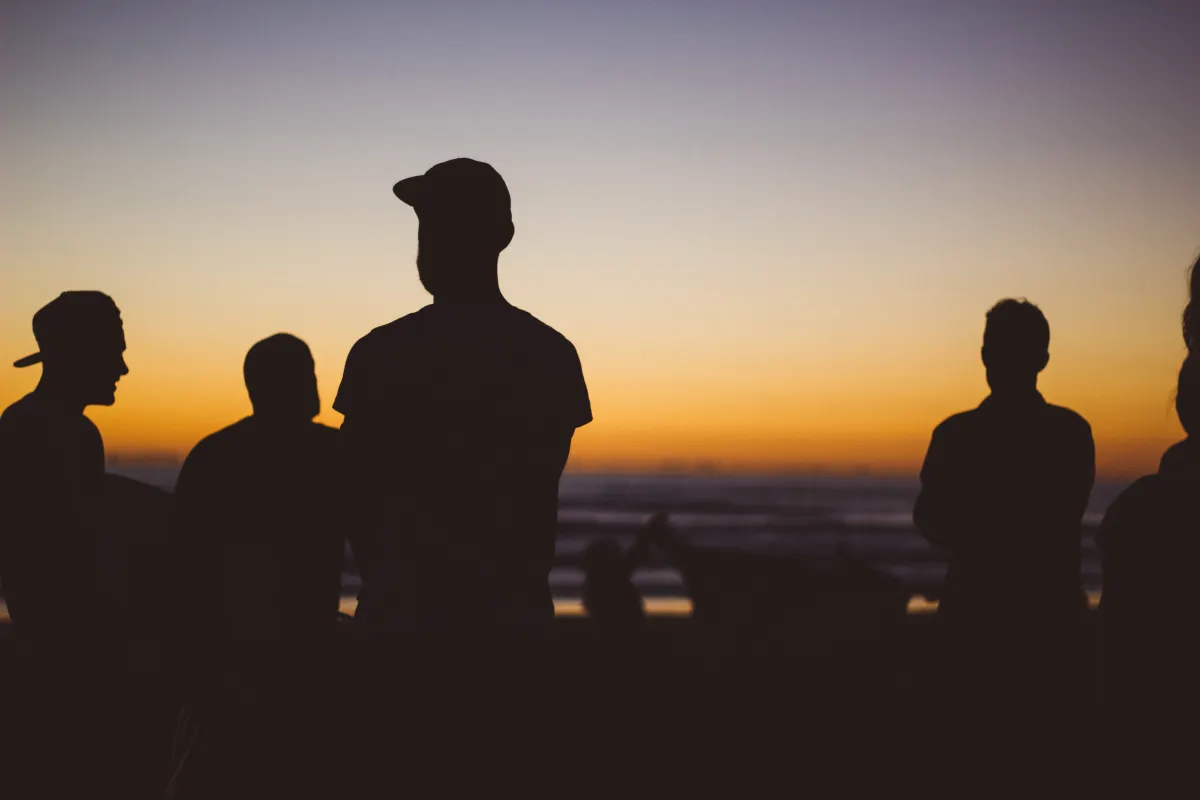Photo by Tim Marshall on Unsplash
by Andy Wallis
To those on the outside, the non-adopted, those that were ‘kept’ as children, adoption is intriguing and lovely. I get questions such as “What is it like being adopted?” and “You must feel very lucky … yes?”
I think they assume that the adopted child’s home is overflowing with love, beyond all measure, due to how we came into the world and this new family. Are they expecting that my gratitude for being adopted as a baby has surpassed normal levels and that I feel continually thankful?
Of course, I’m guessing, I don’t know, but I can see how others outside of adoption might think that my perspective on family is different. I’m not able to draw comparisons to others’ lives because I only truly know mine. I’m also guessing that others are thinking more in terms of the family unit when they ask these questions. In truth, adoption goes far deeper in an individual than they would realistically want to hear.
For the record, my family life and upbringing has been just as normal as the next person’s. Feeling love and connection has never been in question.
I guarantee the one question you won’t hear from people is “So you’re adopted, how is your mental health?” And that’s the one question I really would prefer to answer.
Because up until about 10 years ago I would have said my mind was in tip-top shape. Then came a string of relationship disasters, depression, and anxiety. Perhaps not the response our inquisitor would be expecting.
This year I’ve struggled with these things more than at any other time. But rather than run, my new partner stayed, listened, learned, and gently pushed me in the right direction. Between us, we found books and podcasts, and we read all we could.
That new direction was my adoption. How could being adopted as a baby have affected my life in such negative ways? With adoption comes trauma, it lays its foundations in our minds from the word ‘go.’ As soon as we are taken from our birth mothers’ arms, our minds and brains go into shock, and a mistrust of the world around us begins.
The most troubling symptom of this trauma for me manifests itself in the form of an attachment disorder. In short, I push people away. As soon as they start to get close I pull back. I do this because the closer I get to a person, the more I fear they will leave me. This is not a conscious calculation on my part, it’s just how my mind is wired, I know nothing else. The depression and anxiety come from finding myself doing it.
In Phil Stutz’s book The Tools he refers to the negative, dark part of a person’s mind as their “shadow”. I call mine “Brian” as opposed to ‘brain.’ Calling him Brian was my partner’s idea. She often called the brain ‘Brian’ to amuse herself and would ask me “How is Brian?” I liked it, so it has stuck. It’s good to give my issues a name, it makes them sound small, less dominating, almost silly and it puts them in their place. Yes they are there, but they are not Andy, they are Brian, and he is an idiot!
Imagine a small annoying little man, in a brown smock coat. A sort of, bitter, tight-fisted shopkeeper with a somewhat monotoned delivery to his voice, soaking up the joy and positivity from the floor of any situation, with his squeegee mop and bucket of doom. He takes great pleasure in it too. He is not required in any situation, but often his presence is a comfort. Brian has been there a long time, although I’ve been more aware of him in the last 10 years.
Was Brian building from foundations of relinquishment? Were my attachment issues born in my mind just after I was? Maybe. I see myself in other adoptees’ experiences, and I have the feeling Brian’s wiring is related. Those who have read my blog ‘Who’s Wally?’ or even read my book will know that I am on a journey to discover more of who I am. I need to know me. The real me, not the pretend me that so often is the first person you speak to when you meet me – or at least that’s how it feels.
The one that never feels part of a group, that refuses to let people in and runs away, that feels like a fraud in almost every situation. Or gets depressed and suffers weird moments of anxiety and hates letting go of the gorilla grip he has on life for fear of losing control. I often feel trapped inside myself, holding myself back and that feeling is almost comforting. I break my back to help people or say the right thing just to feel acceptance. Like me, like me, LIKE ME!
Male adoptees living in the UK, and perhaps living with mental health issues, often put a brave face on things to stay strong and not show the cracks in our minds on the outside. We drink with the lads, we put up shelves, we are the strong ones, and we are the ones people lean on for support, we are not about to start asking for support ourselves for god’s sake, right?!
Well, I disagree. Adoptee men, or men struggling with mental health generally, need to talk. Talk to each other, to friends, partners or GPs and counsellors. Finding solidarity in others has helped me in some incredible ways.
If you have your own ‘Brian,’ find your community, the like-minded. Trust me, we are out there.
Andy Wallis blogs at www.whoswally.co.uk.
